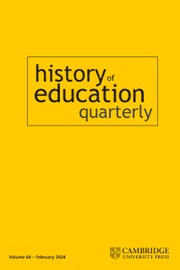A History of the University in Europe
This is the third volume of a four-part series which covers the development of the university in Europe (east and west) from its origins to the present day, focusing on a number of major themes viewed from a European perspective. The originality of the series lies in its comparative, interdisciplinary, collaborative and trans-national nature. It deals also with the content of what was taught at the universities, but its main purpose is an appreciation of the role and structures of the universities as seen against a backdrop of changing conditions, ideas and values. This 2004 volume deals with the modernisation, differentiation and expansion of higher education which led to the triumph of modern science, changing the relations between universities and national states, teachers and students, their ambitions and political activities. Special attention is focused on the fundamental advances in 'learning' - the content of what was taught at the universities.
- A further long-awaited volume in the distinguished 'History of the University in Europe' series
- Contains in-depth essays by internationally well-known authors on key questions in university education from 1800 to World War II
- Makes a unique contribution to the development of social and intellectual thought, and to the history of education
Reviews & endorsements
'This volume can be read with profit by anyone interested in the development of higher education.' The Times Literary Supplement
Product details
December 2004Hardback
9780521361071
776 pages
230 × 162 × 53 mm
1.36kg
20 tables
Available
Table of Contents
- Foreword Walter Rüegg
- Part I. Themes and Patterns:
- 1. Themes Walter Rüegg
- 2. Patterns Christopher Charle
- Part II. Structures:
- 3. Relations with authority Paul Gerbod
- 4. Resources and management Paul Gerbod
- 5. Teachers Matti Klinge
- 6. The diffusion of European models outside Europe Edward Shils and John Roberts
- Part III. Students:
- 7. Admission Fritz Ringer
- 8. Student movements Lieve Gevers and Louis Vos
- 9. Graduation and careers Konrad H. Jarausch
- Part IV. Learning:
- 10. Theology and the arts Walter Rüegg
- 11. History and the social sciences Asa Briggs
- 12. The mathematical and the exact sciences Paul Blockstaele
- 13. Biological and geosciences Anto Leikola
- 14. Medicine Antonie M. Luyendijk-Elshout
- 15. Technology Anna Guagnini
- Epilogue: universities and war in the twentieth century Notker Hammerstein.

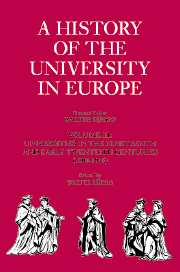
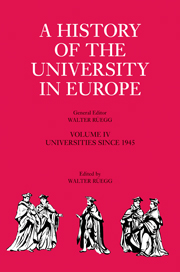
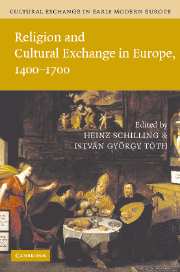
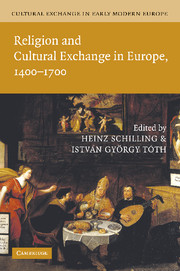
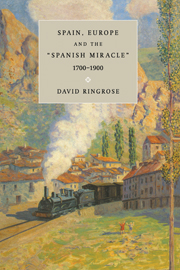



.jpg)
